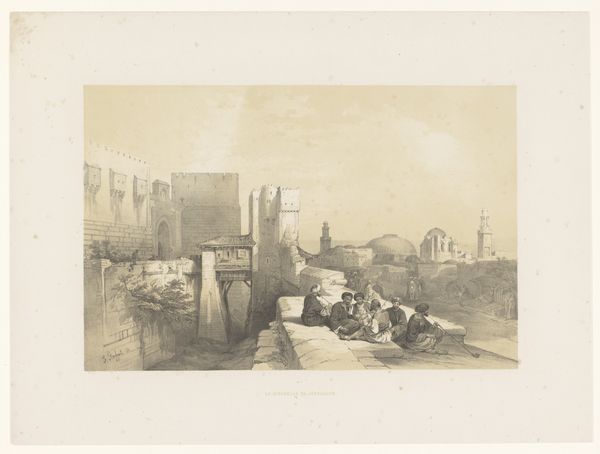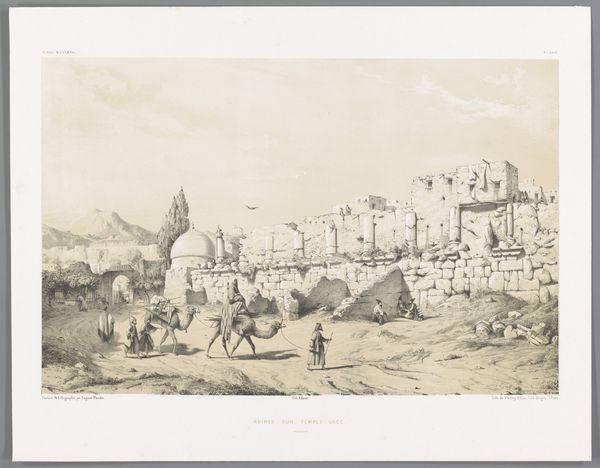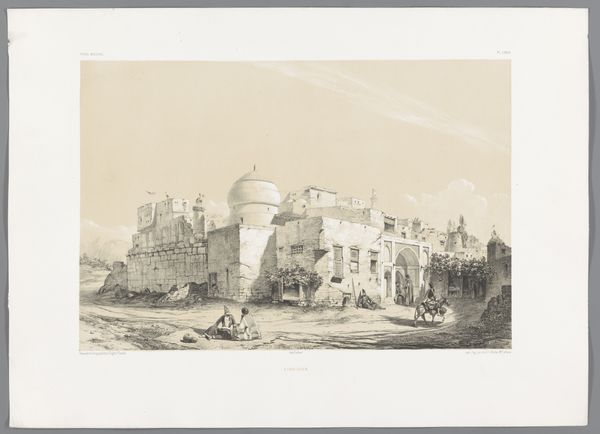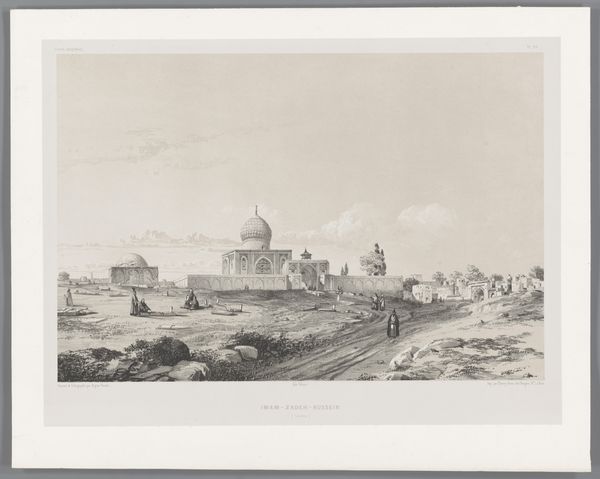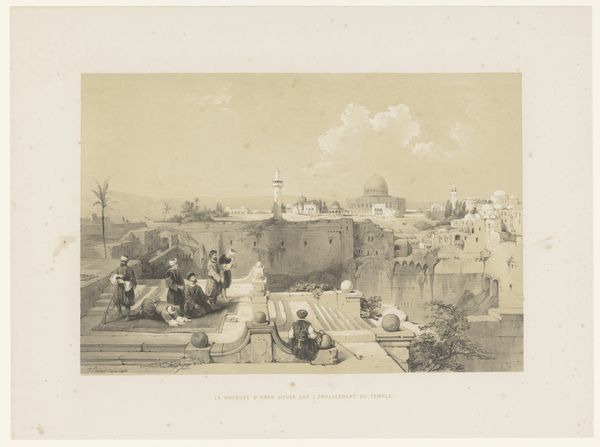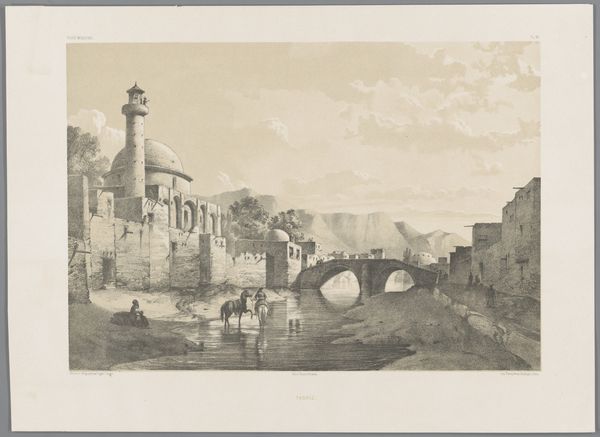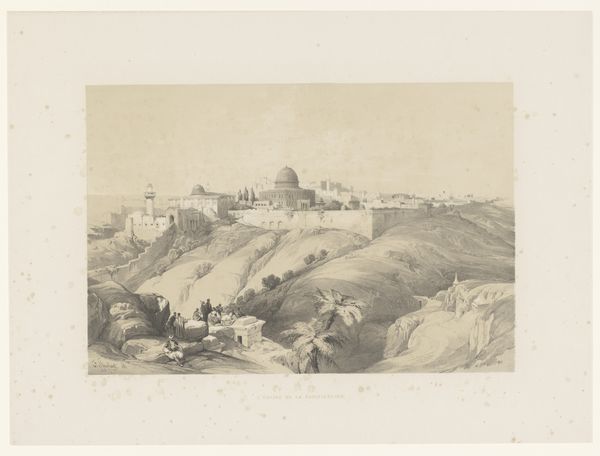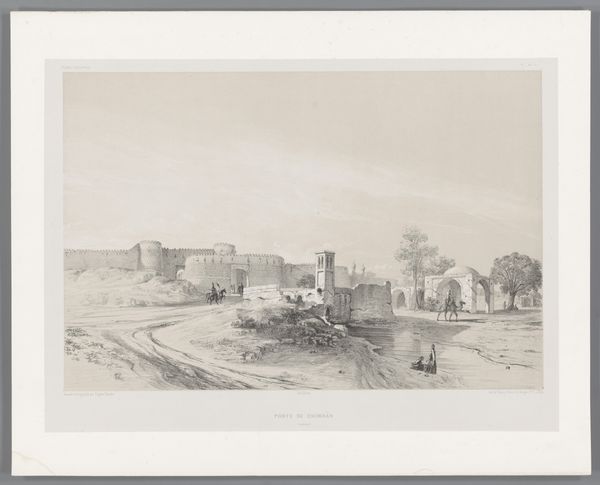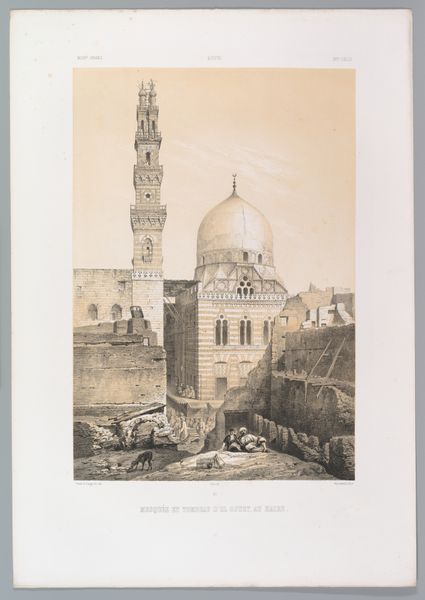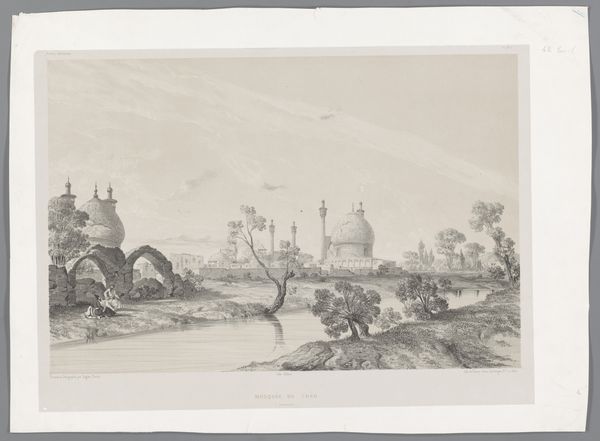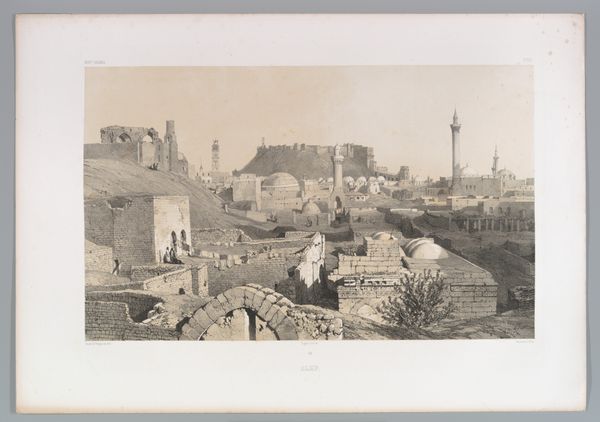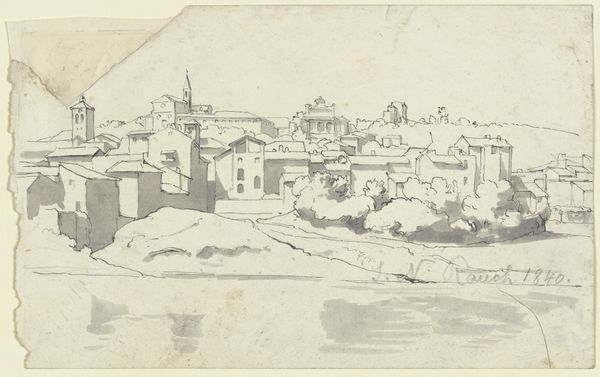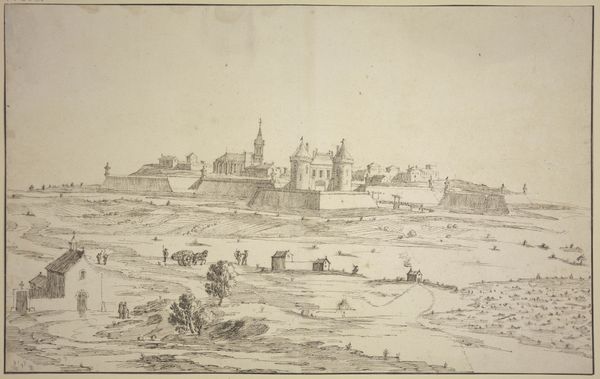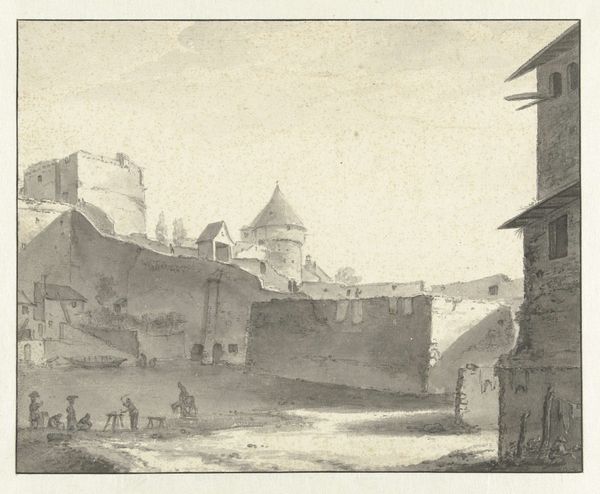
print, etching
#
medieval
# print
#
etching
#
old engraving style
#
landscape
#
orientalism
#
cityscape
#
history-painting
#
academic-art
#
realism
Dimensions: height 397 mm, width 531 mm
Copyright: Rijks Museum: Open Domain
François Stroobant made this lithograph of the Pool of Bethesda in the 19th century. Lithography, a printmaking process using a stone or metal plate with a smooth surface, offered artists the opportunity to produce multiple copies of their work, expanding its reach to a wider audience. The subtle gradations of tone achieved through lithography give this print its atmospheric quality. Stroobant captured the scene's architectural details and human figures with precision. But beyond the details, lithography as a medium invites us to reflect on the interplay between art, labor, and accessibility. By embracing lithography, Stroobant was able to reproduce and disseminate his vision of the Pool of Bethesda, inviting viewers to engage with the scene and contemplate its historical and cultural significance. The work challenges traditional distinctions between fine art and craft by highlighting the importance of material, making, and context.
Comments
No comments
Be the first to comment and join the conversation on the ultimate creative platform.
